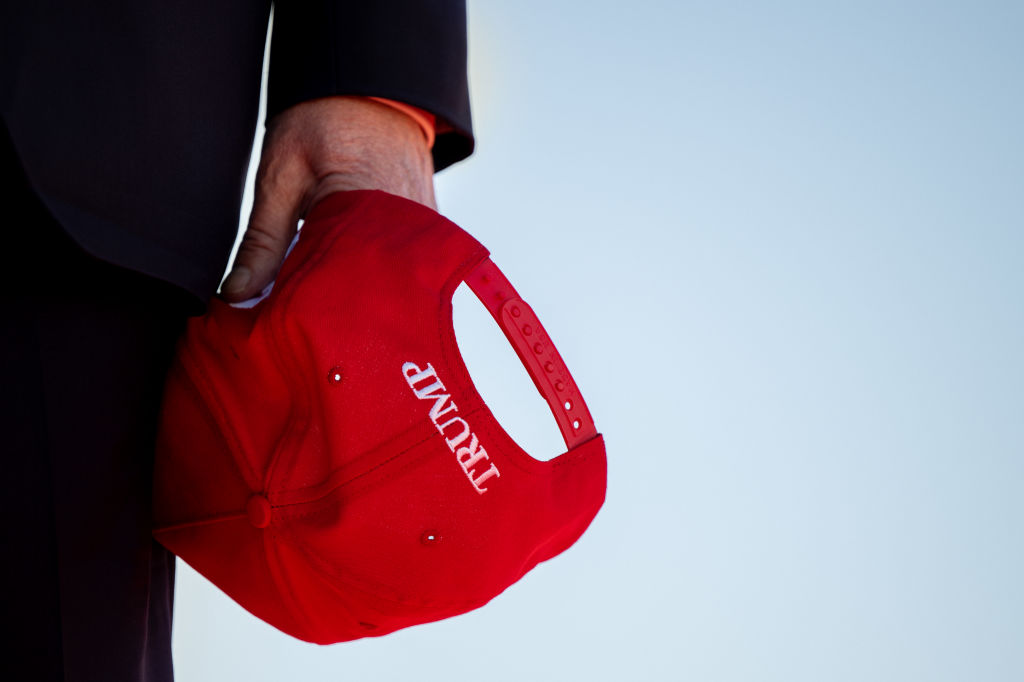The Trump Inquiries, in a Nutshell
Former President Donald Trump is in a legal pickle. Six legal pickles, to be precise. It’s hard to keep them straight, so we thought it would be helpful if we gave you a summary of each proceeding and let you know where things currently stand.
New York Criminal Case
The case that’s getting the most media attention right now is the Manhattan grand jury proceeding led by District Attorney Alvin Bragg. We recently wrote in detail about these proceedings, so we need only mention the elephant in the room here.
According to media reports, Trump has been indicted. Although as of this writing the indictment is sealed, experts believe that it arises out of the alleged payment of hush money to adult performer Stormy Daniels in 2016. The crime the grand jury is currently investigating seems to be falsifying business records, which in New York is a misdemeanor. For the crime to be a felony, the “intent to defraud” must be in pursuit of another crime. That’s the wrinkle.
Some experts suspect Bragg may try to iron out this wrinkle by shoehorning federal campaign financing laws into the state statute. They reason that the hush money paid by Michael Cohen was reimbursed by the campaign, and therefore is an illegal campaign contribution under campaign financing laws.
Bragg faces a number of challenges, both legal and practical. First, the falsification of records charge is a state crime barred by the statute of limitations. It’s not clear that a federal crime supports a felony charge under the state statute. Second, the evidence he’d use to prove this theory is compromised. It consists largely of the testimony of Trump’s former lawyer, Michael Cohen, who himself was convicted of campaign financing violations and other charges. Finally, while politically popular with the left, Bragg’s decision to indict a former president and current presidential candidate is unprecedented. He has crossed the Rubicon, as far as the right is concerned.
New York Civil Case
Meanwhile, last September New York’s attorney general, Letitia James, filed a civil case against Trump in which the state alleges that Trump lied to investors and insurers by overvaluing property to the tune of billions of dollars. One of her goals is to bar Trump and his children, Donald, Jr., Eric, and Ivanka, from operating a business in New York again.
So far, James has had some success. She persuaded the court to appoint an independent overseer to monitor the Trump Organization’s use of annual financial statements, in which James contends Trump overvalued his assets. James also persuaded the court not to dismiss the state’s lawsuit, which increases the chance that Trump will face a civil trial this fall.
Georgia 2020 Election Case
Meanwhile, a special grand jury in Georgia has concluded its investigation into whether Trump and his allies committed a crime by illegally interfering in the 2020 election. Trump’s team had numerous conversations with Georgia officials, including a now-famous call in which Trump demanded that Georgia Secretary of State Brad Raffensperger, “find 11,780 votes,” the number Trump needed to beat now-President Biden in the state.
This case has recently gotten more media attention because the forewoman of the special grand jury, Emily Kohrs, went on a press tear after it issued its report to the court. She told interviewers that the special grand jury recommended indictments of more than a dozen people. Asked if Trump was one of them, Kohrs responded, “You’re not going to be shocked. It’s not rocket science.”
The Fulton County District Attorney, Fani T. Willis, will decide what charges to bring, if any, to a regular grand jury for possible indictments. Reports say her decision is expected by May.
Classified Documents Case
Meanwhile, the Justice Department appointed Jack Smith as special counsel to investigate Trump’s potentially criminal handling of classified documents after leaving office. For more than a year, Trump and his legal team resisted the federal government’s efforts, including a subpoena, to retrieve classified and sensitive documents he had retained when he left the White House.
Last August, the FBI executed a search warrant allowing the search and seizure of certain documents located at Trump’s Mar-a-Lago home. The supporting search warrant affidavit was based on three crimes: espionage, obstruction, and destroying or concealing government documents. During the search, they found nearly 100 documents bearing classification markings.
Recently, Trump lost the attempt to prevent one of his lawyers, M. Evan Corcoran, from testifying before a federal grand jury. Trump’s assertion of attorney-client privilege was rejected by the federal district court in D.C. and the D.C. Court of Appeals. One of his attorneys is also being looked into for swearing that all documents responsive to the aforementioned subpoena had been produced.
January 6 Investigation
Meanwhile, last December the House Select Committee investigating January 6 issued a report concluding that Trump and his associates had devised a “multipart plan to overturn the 2020 presidential election.” The committee also accused Trump of inciting insurrection and conspiracy to defraud the United States, and it referred him and some of his associates to the DOJ for possible criminal prosecution.
Following the issuance of this report, Special Counsel Smith’s investigation into Trump’s conduct picked up steam. In addition to the classified documents matter, Smith is now looking into several of Trump’s plans, including his efforts to submit competing slates of electors in swing states that were won by President Biden. His staff is also investigating Trump’s post-election fundraising.
Jean Carroll’s Civil Suit
Meanwhile, Trump is probably wishing he never crossed paths with E. Jean Carroll (although he denies knowing her). Carroll, a former Elle Magazine columnist, has sued Trump over raping her in the 1990s. The statute of limitations on a battery claim had expired at the time, so she sued Trump in two separate cases for defamation, claiming that Trump defamed her in both 2019 and 2022 by denying he had raped her. She has since added a battery claim to her second suit after New York revived time-barred rape claims for a few years.
On March 28, Federal District Judge Lewis Kaplan denied Trump’s attempt to get the defamation claim dismissed. He rejected Trump’s argument that an “absolute legal privilege” barred the defamation claims, reasoning that Trump’s October 12 post, in which he said Carroll made up the rape claim to promote her memoir and that it was a “complete scam,” was not a report of a judicial proceeding or a “fair and true” report of such a proceeding entitled to immunity.
Carroll’s second case is scheduled for trial in Manhattan on April 25. Judge Kaplan ruled that because the case was unique, the names, addresses, and places of employment of prospective jurors will be kept secret.
Trump Will Be Keeping His Lawyers Busy
As you can see, that’s a lot of “meanwhiles.” Trump will be dodging a slew of judicial bullets while running the 2024 presidential campaign gauntlet. We will see if any hit their target.
You Don’t Have To Solve This on Your Own – Get a Lawyer’s Help
Meeting with a lawyer can help you understand your options and how to best protect your rights. Visit our attorney directory to find a lawyer near you who can help.





